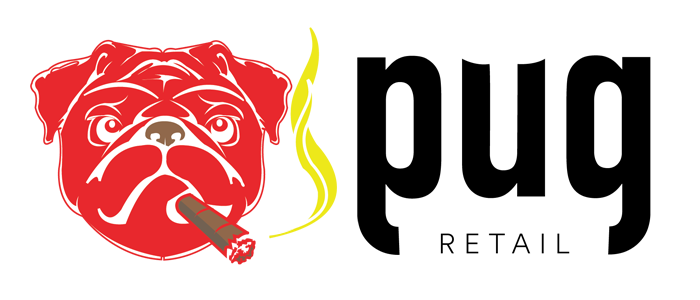What does community engagement mean to you?
When you think about your neighborhood or city, how often do you consider the role local businesses play in fostering a sense of belonging? Community engagement is more than just a buzzword; it’s an essential element in creating a vibrant area where people feel connected and valued. And as the owner or operator of a small business, you’re in a unique position to lead these efforts. This article will guide you through the concept of community engagement, its importance, and how your business can actively participate in enriching the community.
Understanding Community Engagement
Community engagement represents the collaboration between organizations, businesses, and local populations to improve the well-being of the community. It involves listening to the needs and desires of the community and taking action to address them. Simply put, it’s about building relationships and trust.
Engagement can take many forms, such as organizing events, supporting local charities, or establishing programs that benefit the community. It requires you to be proactive, attentive, and responsive to the needs of the people around you.
The Importance of Community Engagement
Community engagement is vital for several reasons.
- Building Relationships: By actively engaging with your community, you create stronger relationships with your customers. These relationships can lead to a loyal customer base, which is crucial for small businesses.
- Local Support: Engaged communities support their local businesses more heartily. When you’re a familiar face and a trusted business, your community members are more likely to frequent your store.
- Social Responsibility: Showing that you care about the community enhances your business’s reputation. Customers often prefer companies that exhibit social responsibility and prioritize local welfare.
- Feedback Loop: By communicating with your community, you gain invaluable feedback. This insight allows you to adapt your offerings to better suit their needs.
When you actively participate in community engagement, everyone benefits—your business, your customers, and the community at large.
Strategies for Effective Community Engagement
Now that you understand the significance of community engagement, it’s essential to explore actionable strategies to implement in your business.
1. Support Local Events
Participating in local events is one of the easiest ways to engage with your community. Consider sponsoring local festivals, farmers’ markets, or charity runs.
- Visibility: By being present, you increase your visibility in the community.
- Networking: You get to network with other local businesses and organizations.
- Direct Engagement: Hosting a booth allows you to engage directly with potential customers, share about your products, and foster relationships.
Supporting local events not only allows you to market your business but also shows your commitment to the local culture and community vibe.
2. Collaborate with Local Organizations
Partnering with nonprofits, schools, or community centers can significantly enhance your engagement efforts. These organizations often have established networks and missions that resonate with community members.
- Co-Hosted Events: Work together to organize workshops, fundraisers, or informational sessions.
- Resource Sharing: Share resources like materials, space, or volunteers to maximize impact and outreach.
- Mutual Promotion: By promoting each other, both your business and the organization can expand their reach.
Such collaborations help support local initiatives while also enhancing your business’s visibility and reputation.
3. Establish a Loyalty Program Focused on Community Support
Creating a loyalty program that serves the community can strengthen relationships with your customers while encouraging them to shop at your store. Here are some ideas:
- Points for Participation: Award points not just for purchases, but for community service or involvement in local events.
- Charity Give-Backs: Allow customers to donate their loyalty points to local charities that you partner with.
- Local Discounts: Offer special discounts for community service workers or volunteers.
Your loyalty program can become not just about rewards, but about fostering a culture of giving back.
4. Utilize Social Media for Community Conversations
In today’s digital age, social media serves as a powerful tool for engagement. It allows you to communicate not just announcements but also conversations.
- Engage with Followers: Host Q&As or polls to gauge community interest. Ask your followers what local issues matter most to them.
- Showcase Local Stories: Highlight local heroes, businesses, or community projects on your platform.
- Use Hashtags: Create a unique hashtag for your community engagement efforts to consolidate conversations and initiatives.
Creating an online community can be just as valuable as physical engagement. It also extends your outreach to new demographics who may not be aware of your business.
The Role of Pugretail and Bighairydog in Community Engagement
Your successful engagement strategies can be supported by the right tools, and that’s where pugretail.com comes in. Pugretail is a POS system specifically designed for small businesses, and it plays a crucial role in how you manage your engagement efforts.
Efficient Transactional Management
With Pugretail, you can seamlessly handle transactions while also gathering valuable data on your sales patterns. This information equips you with insights that can guide your community engagement strategies.
- Customer Preferences: Understand what products or services your community loves.
- Sales Trends: Learn about peak shopping times correlated with community events, allowing you to better plan for involvement.
When you have these insights, you’re in a strong position to serve your community best—whether through your merchandise or your participation.
Streamlining Loyalty Programs
Management of your loyalty program is simplified with Pugretail’s POS features. By using it, you can easily track customer points and engagement without manual hassles.
- Efficiency: Automation saves time and reduces human error.
- Customized Offers: Create tailored promotions based on community needs or events.
As your parent company, Bighairydog.com supports your efforts to utilize Pugretail effectively, helping you maximize your community engagement potential. Their thirty-plus years of experience in providing retailers with POS support means you’re backed by resources and knowledge.
Measuring Community Engagement Success
Engaging with your community is a process, and measuring its success is vital. You’ll want to gather metrics that reflect your efforts accurately.
1. Customer Feedback and Surveys
Soliciting feedback from your customers can help gauge how well your engagement strategies are received. You can utilize digital surveys or simply ask for verbal feedback in-store.
- What’s Worked: Ask what initiatives they love and where you can improve.
- Desired Changes: Gather suggestions for future events or programs.
Incorporating this feedback can help fine-tune your strategies.
2. Sales Metrics
Look at changes in sales figures, particularly following community engagement efforts. Positively influenced sales can be an indication that your engagement initiatives are resonating with customers.
- Track Growth: Compare sales from periods before and after specific events or engagements.
- Evaluate Loyalty Responses: Understanding if loyal members are increased or if there’s repeat patronage after events can be directly tied to community efforts.
3. Social Media Analytics
Use analytics tools provided by different social media platforms to monitor engagement metrics.
- Comments and Shares: Assess if your posts about community events resonate.
- Follower Growth: Track whether there’s an increase in followers following community engagement campaigns.
These metrics can provide a quantitative approach to understanding the impact of your engagement efforts.
Overcoming Challenges in Community Engagement
While the benefits of community engagement are significant, there can be challenges along the way. However, understanding these can help you address issues effectively.
1. Time Constraints
As a small business owner, balancing daily operations with community engagement can be tough.
- Delegation: Consider training staff to assist in engagement efforts, ensuring it doesn’t solely fall on your shoulders.
- Set Incremental Goals: Start small, aiming for one engagement initiative per month, then gradually increase as time allows.
2. Budget Limitations
Financial constraints are a common concern for small businesses.
- Seek Sponsorships: Collaborate with other businesses to share costs for events or initiatives.
- In-Kind Support: Offer your services or products as an exchange for exposure and engagement. For example, sponsor a local event by providing refreshments, rather than monetary support.
3. Measuring Impact
Measuring the actual impact of your engagement efforts can present difficulty.
- Define Clear Goals: Establish specific objectives for each engagement initiative to provide a clearer framework for measurement.
- Use Mixed Methods: Combine quantitative data (like sales) with qualitative feedback (like customer stories) for a more rounded view of impact.
Anticipating these challenges helps you maintain momentum in your community engagement efforts and ensures that obstacles become learning opportunities.
Conclusion
Community engagement is a powerful opportunity for your small business to build relationships, foster goodwill, and enhance your reputation in the community. Through various strategies like supporting local events, partnering with organizations, leveraging social media, and implementing a well-structured loyalty program, you can create a positive impact in your community.
Remember to utilize tools like pugretail.com to streamline your efforts and make the process as efficient as possible, allowing you to focus on what matters most—your relationship with your community.
As you actively engage, measure your efforts, and overcome challenges, you’ll not only contribute to a vibrant community but also support the growth of your business. Community engagement isn’t just good for PR; it’s good for business. By prioritizing and investing in your community, you’ll notice the returns come back in different forms—customer loyalty, increased sales, and a good reputation. So, how will you begin your community engagement journey today?

